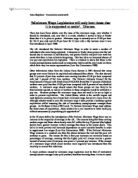‘Some 1.3 million workers benefit from the minimum wage. The main beneficiaries have been women, the majority of whom work part-time and many of whom are lone parents’ (Sloman, J)
It also meant that part time work was, although more appealing, harder to get as there were numerous amount of people applying for jobs and because employers had to pay the minimum hourly rate they may have cut back on recruitment as it may have proved to be costly.
Another factor of introducing the NMW (National Minimum Wage) was to reduce the Gender pay gap.
‘Women are over-represented amongst the low paid, and the proportion of low-paid workers varies across regions, one might expect to see the introduction of the NMW narrowing the overall gender pay gap by varying degrees across the country ’ (Robinson, H)
Here you can see how the NMW had impacted on the incentive to work for women. It helped women earn a decent wage, mainly at a serviceable level, however none the less helped to close the gender pay gap, this resulting in being an incentive for women to work as many women have argued in the past about unfair wages due to gender.
Another factor to look at is people from poorer backgrounds. For those people who were poor and unskilled the introduction to the minimum wage was a blessing as such due to the fact that they would be able to get employed for jobs that did not require any qualification and be paid the minimum wage.
‘Minimum wage as a mean of relieving poverty’ (Sloman, J)
As explained above the minimum wage helped those of poorer backgrounds. The reason for introducing the minimum wage so that exploitation of employees no longer took place, for example for doing services such as cleaning etc the employees were being paid a fair amount rather than £2 an hour.
Figure 1
The statistics used in Figure 1 were taken from econstats.com
The graph show how the UK’s unemployment rate has fluctuated through the years. In 1999 6% of the population were unemployed however, due to the introduction of the minimum wage it shows a year later the percentage had dropped ½ a percent. Although this may seem minor ever since the minimum wage was initiated, unemployment has continued to decrease and in 2006 unemployment was at 4% meaning it had dropped 2% since the minimum wage. These findings
From the increase of employment there was also a decrease in benefits. Those whom were claiming JSA (Job Seekers Allowance) would obviously not have been once starting work. For example if a man were to work 20 hours a week which is technically part-time (4 hours Monday to Friday) for the current minimum wage which is £5.52 he would earn £110.40 a week, where as if he was collecting JSA he would only get a maximum of £59.15. As you can see from the example it would be more beneficial for the man to work part-time than staying at home therefore due to this in 1999 and thereafter there has been a decrease in unemployment and also in JSA benefits.
In conclusion you can see the minimum wage has had a substantial impact on the incentives to work for different people and the continuation of the national minimum wage in the UK would prove to be beneficial looking solely at the statistics and information provided here.
References
Sloman, J. (2006) Economics. Essex: Pearson Education Limited
Directgov. (2007) [Online] Available from: [29/11/2007]
Econstats. United Kingdom and Unemployment Rate [Online] Available from: [30/11/2007]
Robinson, H. (2005) Regional evidence on the effect of the national minimum wage on the gender pay gap. Regional Studies. 39 (7) 855







